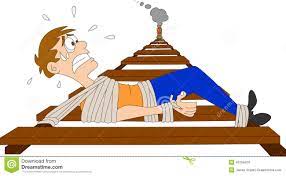
The German philosopher, Friedrich Nietzsche wrote that one must have chaos inside to give birth to a dancing star. One might interpret this as Nietzsche saying that suffering is necessary for creating something beautiful. The notion that suffering is life is also something that we are told is a central tenant of Buddhism. Schubert suffered from mental cyclothymia (a milder form of bi-polar disorder) but wrote music like Ave Maria, Rachmaninoff went through a spell of serious depression before emerging to write his 2nd piano concerto in C, and Mozart, famously, was writing a requiem (song for the dead) when he realised that he was dying, also. He is said to note that (pun unintentional, but brilliant) he was now writing his own requiem. In literature the examples are also innumerable, one of my favourites being von Hardenberg, who after mourning the loss of his betrothed, trying to contact her via the occult, emerged as the poet Novalis who write a beautiful book (Henry von Ofterdingen) about living one’s life trying to make dreams come true.
However, if we say that in order to create beautiful things, one must first suffer is absurd for if this was true, the world would be filled with people making beautiful things. One must also be aware of the relative nature of suffering. Einstein, for example, (another unintentional but brilliant pun) said that he relished solitude for that is where he was happiest. The same is true of the likes of Tesla, Newton et al. One’s suffering is subjective to the self and so the solitude that for many would be unbearable gave rise to Kafka’s letters to Milena, some of the most beautiful love letters ever written. Beethoven’s Asperger’s and IBS enabled him to write his 9th Symphony, yet what is different about him and his suffering, and the suffering of those who do not create beauty- be in works of art or kindness?
The notion that Buddhism is all about suffering is a misconception. The notion that one suffers, and accepts that life is to suffer is not Buddhism, it is nihilism. Buddhism teaches that one suffers, but if one can enter into the suffering to find the root cause then one can relive the suffering. Whilst many would say, the Stoic philosophers in particular, accept the suffering, Buddhism teaches us to move past the suffering through self-exploration. Buddhism is in many ways psychology. And here we reach the crux of the matter. What do those named above have in common? They were strong enough to accept their suffering, but to also try to move past it. It seems possible to say without fear of contradiction that whilst experiencing his depression that Rachmaninov did not find it beautiful, but having the strength to move past it, to emerge from it a changed man, a deeper, more profound, more empathetic man. Rachmaninoff could re-enter his darkness and light a candle.
Whilst one may indeed need to have chaos inside to give birth to something beautiful, in life, it is true, it is not what happens to us but who we are which determines who we will be.
‘till next time








